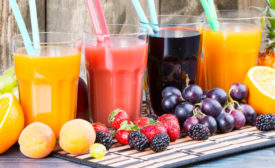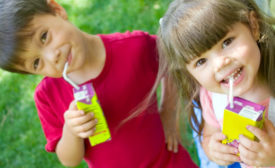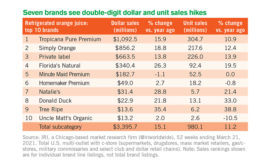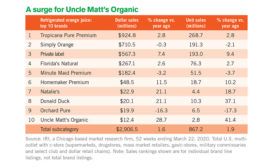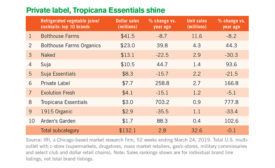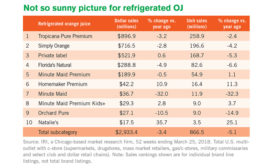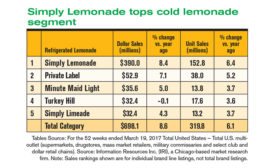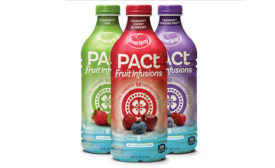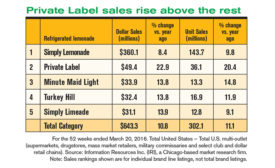Home » Keywords: » juice sales
Items Tagged with 'juice sales'
ARTICLES
A turnaround for aseptic juices at retail
The ready-to-drink juice category greatly outperformed its sister categories.
June 2, 2022
Jolly times for refrigerated juices
The category posted strong dollar and unit sales gains at retail.
May 20, 2021
2020 State of the Industry: Nondairy beverages put on a happy face
On-trend product development is helping key segments avoid a sad-clown frown.
November 2, 2020
Retail sales of refrigerated juices rebound
But shelf-stable juice categories continue to struggle.
May 27, 2020
Refrigerated juice sales squeezed
The juice sector experienced overall losses; however, several subsets had positive growth
June 4, 2019
Orange juice sales continue to tumble
But sales of fruit drinks and health-boosting juices are on the rise.
June 4, 2018
Sales are sweet for refrigerated lemonade, fruit drinks
While some refrigerated juice and drink sales are struggling, sales are up for fruit drinks, lemonade and veggie juice blends.
June 6, 2017
Functional, clean label trends drive growth of vegetable juices, juice smoothies
Consumers are looking for beverages with no added sugar, and functional and clean ingredients. This has presented challenges for some juice manufacturers.
May 11, 2017
Sales of veggie juices, lemonade sales are all juiced up
Sales are promising for vegetable juices, juice drinks, smoothies and lemonade. Orange juice sales struggle.
June 8, 2016
Stay ahead of the curve. Unlock a dose of cutting-edge insights.
Receive our premium content directly to your inbox.
SIGN-UP TODAYCopyright ©2025. All Rights Reserved BNP Media.
Design, CMS, Hosting & Web Development :: ePublishing
